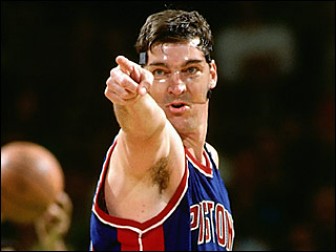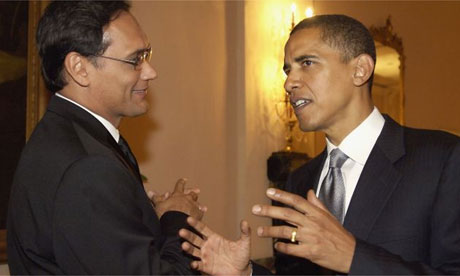"The discovery that a few men, often acutely conscious of their lack of public influence, can by the use of the caucus technique and a little cool calculation acquire a wonder-working efficacy in town meetings and parliaments has never ceased to amaze and fascinate people."-
E.E. Schattschneider, Party Government
This post may sound like a slam on Hillary Clinton's supporters. It's really not. If anything, I sympathize with their position, and I imagine I'd be acting similarly were the roles reversed. I rather admire their level of organization.
At any rate, this past weekend saw the first meeting of the Colorado delegation to the Democratic National Convention. I had assumed it would just be a get-to-know-each-other session with a little Q&A, but it turned out that we had actual business to attend to. We needed to select a chair and vice-chair of our delegation.
Traditionally, the state party chair (currently
Pat Waak) serves as the delegation chair, so we just gave her that job. She's officially uncommitted between Obama and Clinton, so this was not a controversial decision. (She's said that she has a preference but doesn't want to publicly endorse because, as chair of the host state party, she doesn't want either candidate or his/her supporters to feel like they're not getting a fair hearing. I respect that.) However, then we needed to pick a vice-chair, someone who theoretically would be in charge of our delegation if Waak is unavailable, which she may be at various points during the convention.
At this point, the room quickly polarized into Clinton and Obama factions, with the Obama delegates outnumbering the Clinton delegates by about 2 to 1. The Clinton people pulled a
disappearing quorum and left the room, leaving each side to caucus privately.* When they came back in, Waak, sensing the tension, suggested that we pick Sen. Salazar or Gov. Ritter, both of whom are uncommitted, as a vice-chair. However, a delegate argued that those of us in the room had worked very hard to get there, and the vice-chair should really come from our ranks. This sentiment was widely shared. So it was clearly going to be either an Obama person or a Clinton person, and the Obama people had the votes.
A Clinton supporter took to the floor and said that we needed to come up with a solution that served our whole state delegation and not just a simple majority of those of us in the room. He then said that if the Clinton people were not satisfied with the outcome, they would walk out and permanently deprive the meeting of a quorum, and they would tell the media that they'd been railroaded. Several Obama delegates shouted "Blackmail!" at this point.
At any rate, a vote was held. Several people offered their names for vice-chair. The votes concentrated around one Clinton person and one Obama person. The Obama person won. The Clinton delegates stood up to leave. At this point, an Obama delegate stood up and suggested that we appoint a Clinton supporter as an "honorary co-chair" who would not have formal power but would be part of the leadership triumvirate. This was apparently enough to keep the Clinton people in the room. The motion passed and the rest of the meeting went on without incident.
I took the meeting as a bit of foreshadowing should we go to the actual convention without a presumptive nominee. I certainly don't blame the Clinton folks for the tension -- they were in the minority and used what few tools they had to keep from getting railroaded. I'm sure I'd have done them same thing in their shoes, or at least supported doing so. But it was a real eye opener. I can only imagine how much more tense such meetings are in states that saw closer votes.
UPDATE: I should have noted that a Clinton delegate floated the idea that we have two vice chairs, one from the Obama camp and one from the Clinton camp. This proposal was rejected largely along "party" lines, although I believe a few Obama people supported it. There were two major objections: 1) How would decisions be made if there were two people who disagreed with each other who were in charge?; 2) Why should the Obama people concede to equal standing with the Clinton people if the former outnumber the latter 2 to 1?
*I remain curious as to whether the Clinton delegates had coordinated their efforts prior to the meeting or had received guidance from the state Clinton campaign. It had the appearance of a spontaneous caucus, but it's hard to know. The Obama people, as far as I know, did no organizing prior to the meeting.














